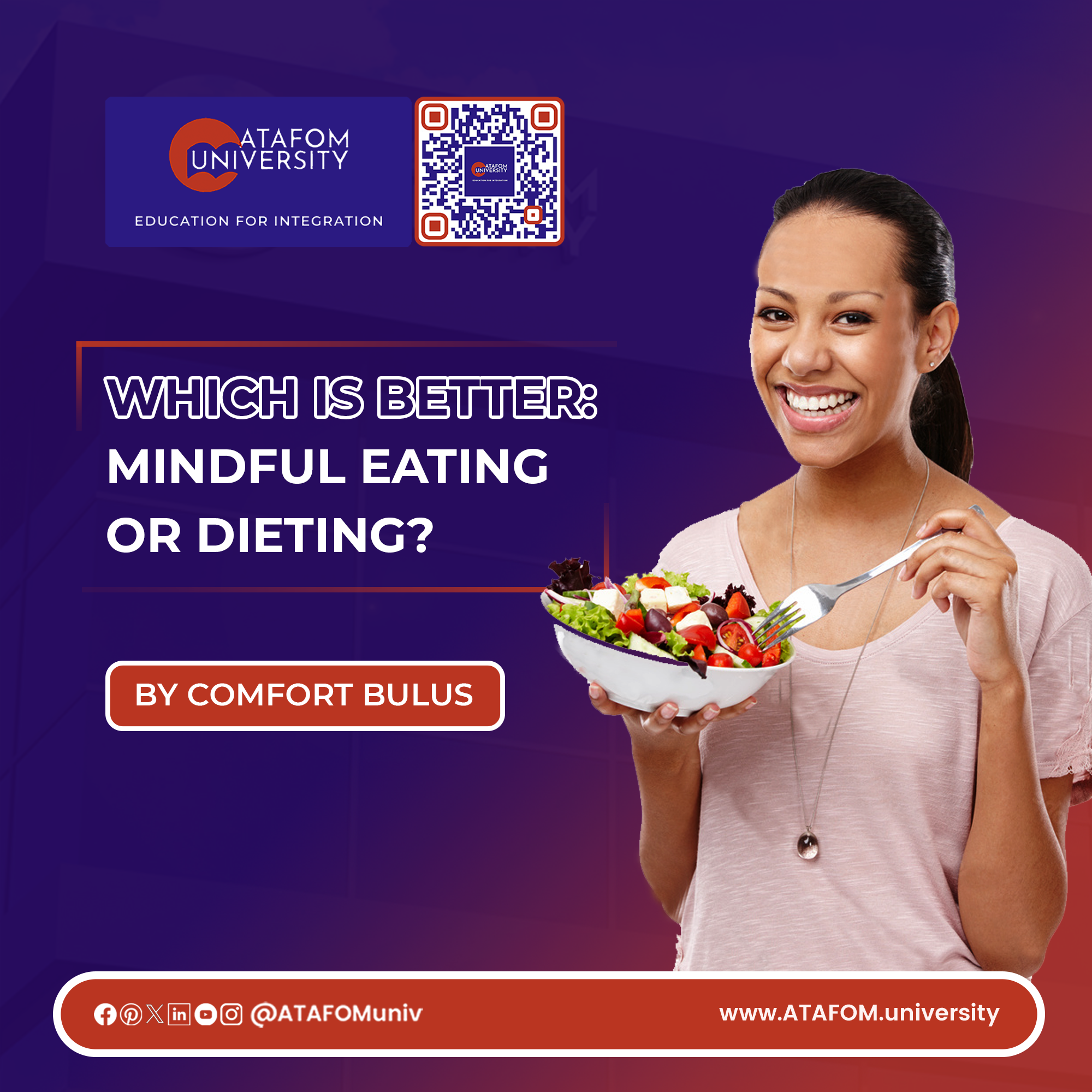When attempting to lose weight, we’re typically urged to pay more attention to what we eat, whether it’s the type of food we choose or the quantity. Most of us have dieted or paid more attention to our eating habits.
The practice of mindful eating extends the concept of mindful eating even further. Eating more slowly, mindfully, or slowly may help us appreciate our food more, make healthier food choices, and reduce our tendency to overeat.
The main goal of dieting is to reduce our calorie intake and achieve a calorie deficit. There are many different diets, ranging from the practical Mediterranean Diet to the less rational Grapefruit and Black Coffee Diet. On the other hand, mindful eating entails both what we eat and how we eat. It is founded on the Buddhist principle of mindfulness, which promotes awareness of our external environment and interior thoughts. By dining in a distraction-free setting, mindful eating lets us concentrate on our meal’s flavour, aroma, texture, and appearance. We carefully select our meals, preparing them with complete foods like lean protein and fresh veggies.
Instead of overeating, mindful eating emphasises savouring and enjoying food. Overeating can be challenging to detect, and gorging on a burger and fries before a meeting is not fun. Set a timer for 15 to 20 minutes, take little nibbles, use a fork and knife to thoroughly chew your food, hold your fork or spoon in your non-dominant hand, or use chopsticks to help you take your time and enjoy your meal. Please pay attention to your eating patterns, then change them as necessary.
As this slowing down becomes more comfortable, it should give us time to reflect on our relationship with food, whether overeating or eating, in general, is associated with a particular emotion, and if so, how we might respond to those feelings better.
On the other hand, dieting focuses more on what and how much we eat than on how we eat. In general, dieting entails calorie restriction. There are countless diet programmes, books, apps, and videos—perhaps even millions—but some are unquestionably superior to others.
The best diets share a few characteristics. Good diets place more emphasis on quantity control than they do on categorising meals as “good,” “bad,” or “forbidden.” Understanding proper portion sizes is a fantastic skill to master because it can help you stay on track whether you cook at home or eat with friends. A successful diet plan must also be flexible; if we make excellent food choices 85% of the time, we may give ourselves a little leeway on the other 15%.
Whole foods like fresh fruits, lean proteins, healthy fats, and fibre-rich meals like beans or greens should be promoted together with physical exercise in healthy diets. These foods offer a filling supper, are simple to prepare, and are filled with nutrients. One hundred fifty minutes a week of consistent training can raise mood, increase metabolism, and burn more calories. A healthy weight can be maintained, and stress levels can be decreased with regular exercise.
Extreme diets that cut calories or restrict food options are unsustainable and do not promote the development of healthy habits. While they could lead to a brief weight reduction, they are strict, and when departed from, they can cause a return. A cautious, steady, health-focused approach should guide diet selection. The optimal strategy may involve fusing mindful eating and dieting with individualised plans considering each person’s needs, objectives, and preferences.
Healthy diets and mindful eating emphasise choosing whole foods over processed ones. Making meals for the week may be a kind of self-care because it gives you control over the ingredients and serving sizes. Planning, cutting, preparing, and organising food into containers with care may all be relaxing and enjoyable activities. Diets frequently recommend eating slowly since it takes our brains around 20 minutes to signal our bodies that we are full. Overeating from hurried eating might make it challenging to recognise when you are satisfied. Eating more slowly helps prevent this error and improves general health.
Although mindful eating is more about enjoyment than anything else, it urges us to eat more slowly. You may more fully enjoy the beauty, aroma, and flavour of each bite of well-prepared, healthy food when you take your time and savour it.


